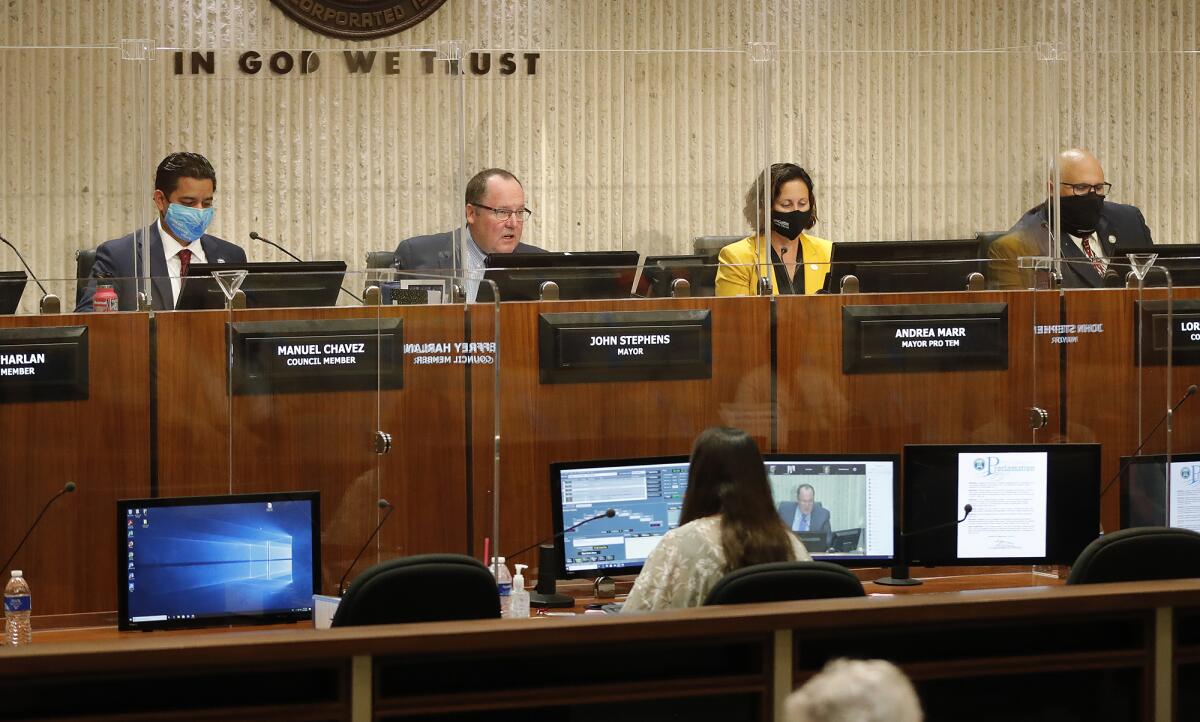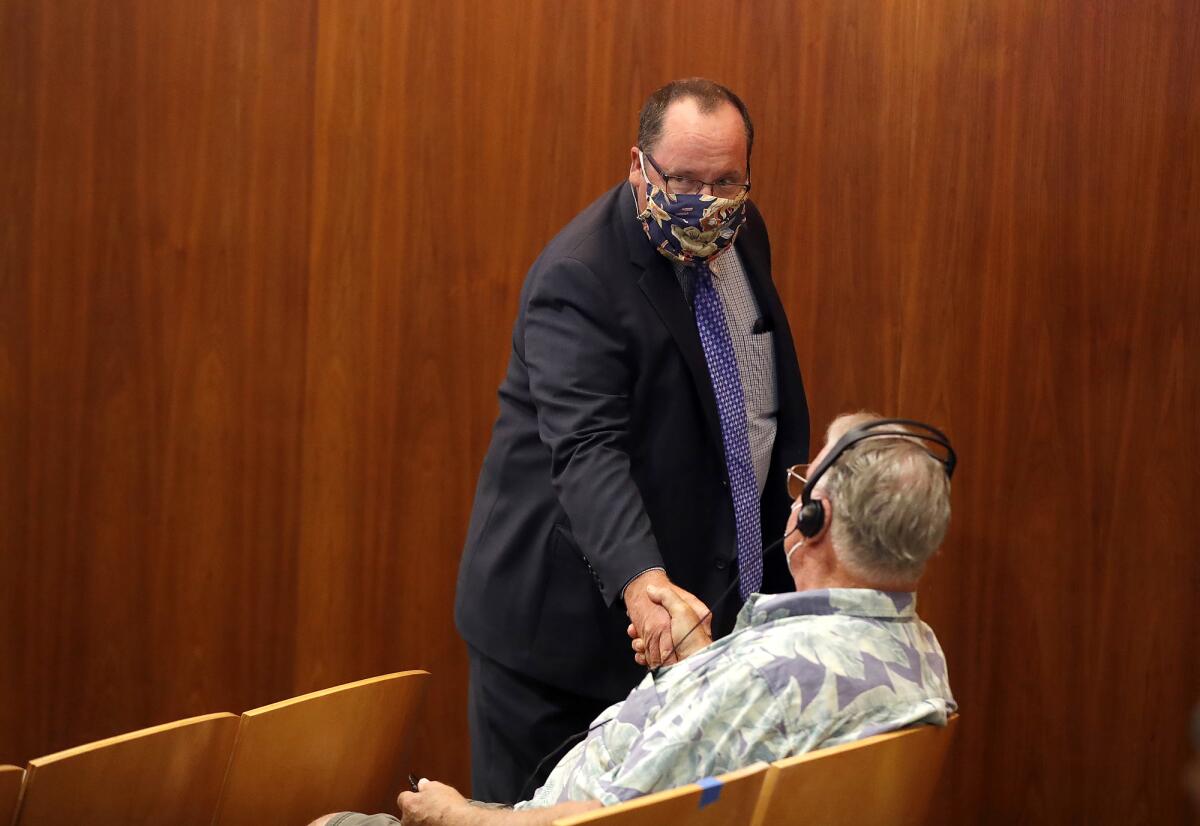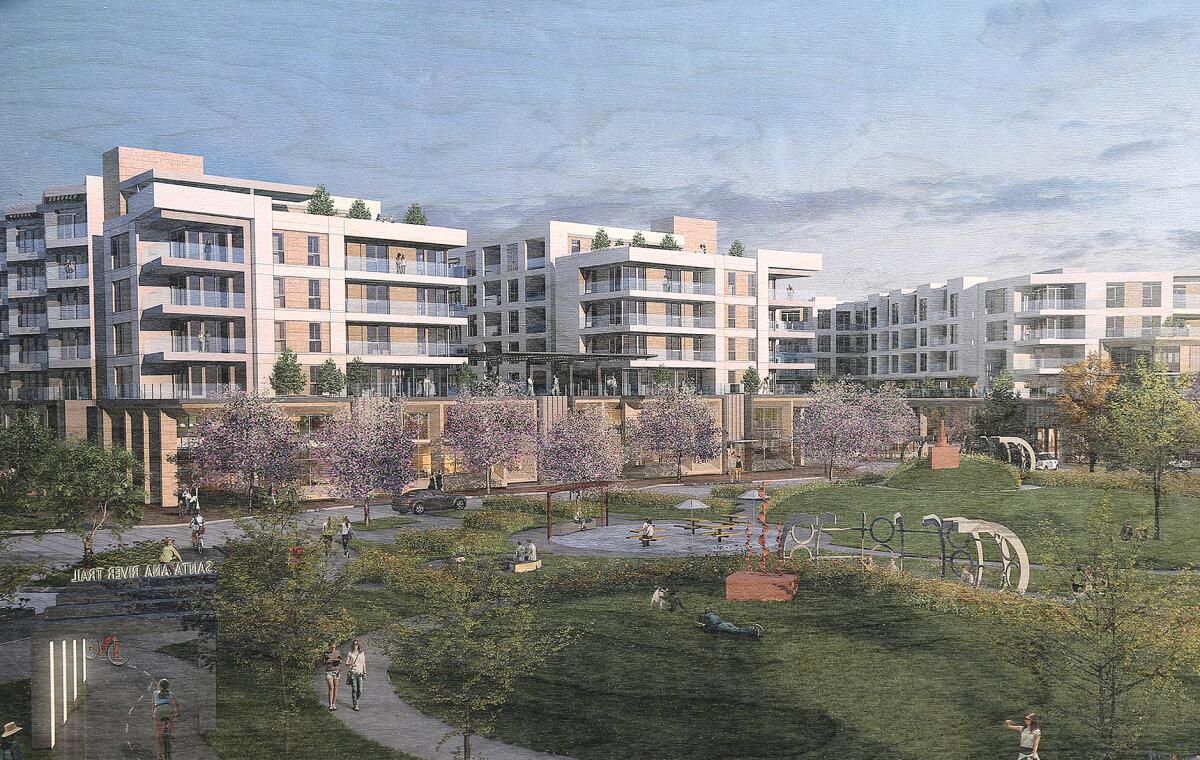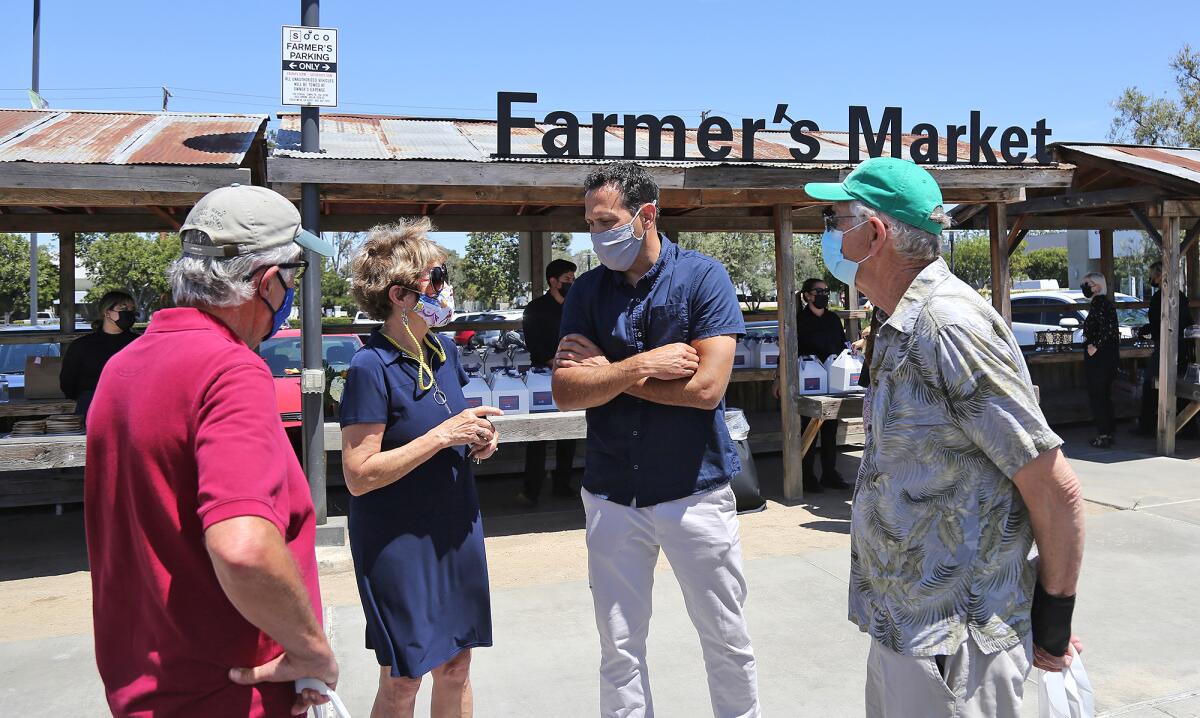Costa Mesa City Council returns to in-person meetings, approves 1,057-unit One Metro West

- Share via
Costa Mesa City Council members convened at City Hall Tuesday for their first in-person meeting in 15 months and approved a 15.23-acre mixed use development with 1,057 apartments just north of the 405 Freeway.
One Metro West — which plans to provide 1.5-acre of public open space, a $6-million payment to the city and 106 affordable housing units in exchange for land use entitlements codified in a 25-year development agreement — has drawn champions and critics during years of planning and review.
For the record:
3:23 p.m. June 17, 2021A previous version of this story incorrectly referred to Wendy Leece as a former mayor of Costa Mesa.
But its fate hung in the balance Tuesday as Beverly Hills developer Rose Equities made a final pitch to the council in socially distanced chambers, where uniformed police enforced a 25-spectator cap and supervised an outdoor overflow viewing area.

Rose Equities partner Brent Stoll maintained the project, planned for 1683 Sunflower Ave., would help correct an historic and worsening imbalance in the city between the number of available jobs and housing units, while offering numerous public benefits.
“Not only will development of One Metro West help address the issue of a live-work-play balance, it will provide a tremendous financial shot in the arm to our community at a time when COVID-19 has had a massive impact on our economy,” he told the council.
Stoll said the site would be an ideal location for the 5,000 employees who currently work north of the 405 Freeway and as many as 2,700 workers anticipated to come when federal defense contractor Anduril relocates its corporate headquarters to a property down the street.

“Approximately $155 million in employee wages will be walking into Costa Mesa at Anduril in the next five years,” Stoll said. “The question is, where will these employees and these wages go at night?”
Retail uses at One Metro West and the nearby SOCO & OC Mix, he continued, would provide shopping and dining options for residents, while proposed street improvements along Sunflower Avenue and bike trails to the nearby Santa Ana River would create recreational opportunities and potentially reduce vehicle traffic.
Some supporters of the project praised its pedestrian- and bike-friendly design. Others acknowledged the affordable units would address a citywide housing shortage and help meet a state mandate requiring the city plan and zone for 11,760 units in the next nine years.

“If every development was engaged with the city and took responsibility for a portion of affordable housing, we would see better housing and better provision for everyone in our city,” said resident Christine Nolf, an associate pastor at Redemption Church.
“People who have secure housing in our city and have had that for a while might not be aware of the actual crisis that we are in,” Nolf added.
Not everyone who commented Tuesday on One Metro West and its massive environmental impact review (EIR), which concluded the project would create significant traffic and greenhouse gas emission impacts, took such a rosy view of the development.
Rus Purcell, a Costa Mesa resident and retired geologist said he and former colleagues looked at the environmental review and found it severely lacking.
“It’s inadequate and incomplete and doesn’t support many of the statements made throughout,” Purcell said via Zoom. “There’s a total conflict of interest in parts of the document. And all of these were pointed out to the Planning Commission, and they just … rubber-stamped it.”
Former Costa Mesa Councilwoman Wendy Leece expressed concern that Measure Y, a 2016 law requiring voter approval of development projects exceeding certain zoning and impact thresholds, might somehow be subverted or amended in order to accommodate One Metro West.
“Respect the 70% of voters who voted for [Measure] Y and let the developer put the project on the ballot and let the Costa Mesa voters decide,” Leece said.
The City Council in May 2020 considered loosening Measure Y to exempt certain affordable housing projects, or create geographic areas of exemption, to help the city meet its state-mandated regional needs housing allocation for 2021-2029, but then decided against it.
Since then, California lawmakers attempting to address a statewide housing crisis have drafted new laws that seek to override citizen-backed initiatives like Measure Y, so cities would have more leeway to plan and zone for high-density residential units and low-income housing.
Mayor John Stephens assured residents council’s approval of the EIR and entitlements would not preclude Measure Y, adding a project cannot be put on the ballot until it’s been approved in a vote.
Councilman Loren Gameros said he appreciated Rose Equities’ engagement with the public.
“This is about negotiating to see what we can make work for the community,” he said. “I think this is going to be a wonderful benefit for our community in the long run.”
Councilman Jeff Harlan recused himself from the vote, since he’d previously supported One Metro West when it came before him at the Planning Commission level last year. Councilman Don Harper cast the lone dissenting vote against the project.
“It’s a bit of a polarizing issue,” he said. “I like development. I like building. But there’s a lot that [people] in the community I represent don’t like about it.”
All the latest on Orange County from Orange County.
Get our free TimesOC newsletter.
You may occasionally receive promotional content from the Daily Pilot.




